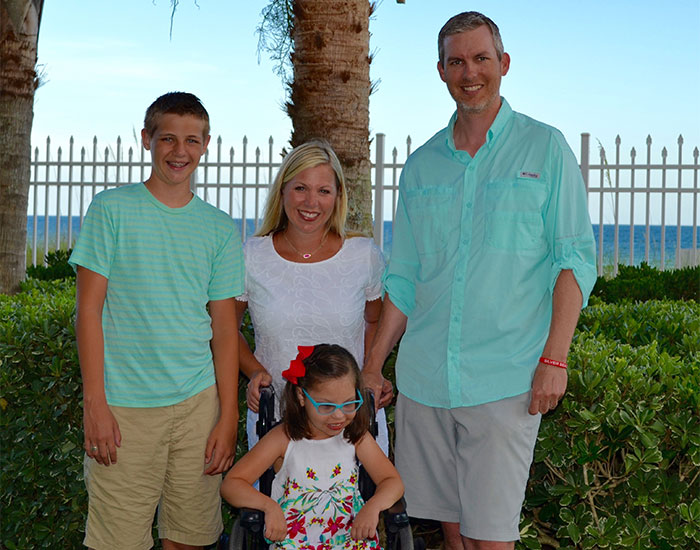Transitional Care Conference to seek ways to address families’ needs
By Jan Jarvis

Soon after their daughter Kendall was born, Jocalyn and Justin Briggs were told their baby would not live past her third birthday.
Now 8, Kendall is thriving with the help of an army of health care providers that includes physical, occupational and speech therapists. Her parents want to do everything possible to keep Kendall that way. But in the future looms a fear they once thought they would never face: how to help Kendall to continue thriving as she moves from childhood to adulthood.
“There are just a lot of scary things I’m afraid we are going to have to face as she ages out of pediatric care,” Mrs. Briggs said. “It’s overwhelming.”
For children who have chronic illnesses or complex disabilities, making the transition from pediatric to adult care is fraught with challenges. Those challenges and the need for coordinated care to help this vulnerable population will be addressed Thursday during the North Texas 2017 Transitional Care Conference at the UNT Health Science Center.
The conference will look at successful care models being used around the country and explore innovative programs in North Texas. The goal of the conference, which begins at 8 a.m. in the Medical Education and Training Building (MET), is to find ways to address the enormous need for a coordinated approach so that families such as the Briggs get the help need.
The transition from childhood to adulthood care can be very complicated, and there’s much more involved than just finding a physician to manage the individual’s care, said Dr. W. Paul Bowman, MD, conference chairman and Chairman and Professor of Pediatrics at UNTHSC. Specialists from multiple fields, navigators, legal experts and others are needed to provide a coordinated effort.
“These are kids with severe disabilities, and many don’t have suitable providers to meet their needs,” Dr. Bowman, conference chairman. “There’s such a big need when these kids reach their 20s and pediatric providers are no longer able to help them.”
The Briggs family knows this well.
Since they get most of their services through Cook Children’s, they know Kendall’s providers talk to each other, making her care seamless.
“I know that her orthopedics provider is going to talk to neurology and ultimately have a consensus on the care she gets,” Mrs. Briggs said. “One of my biggest fears is not having one place where everyone who provides care for her is.”
The importance of having a medical home, and how one model of care is helping families in Houston, will be examined during the conference by keynote speaker Dr. Cynthia Peacock, Transition Medicine Clinic Director at Baylor Clinic.
The need for models of care is great, said Matt Robinson, Clinical Director of the Child Study Center.
“Addressing the lack of transition models in our systems is a critical step in ensuring appropriate health care and quality of life for children with chronic and complex health needs in Texas who are preparing to transition into an adult model of health care,” he said.
The conference will also include a presentation on the impact of the newly implemented Texas Medicaid managed care program for children to adults age 20.
Continuing Education Credits are available for a variety of professions.
For the Briggs and other families, the conference is a step toward making sure their children will have services available to support them when they reach adulthood.
“Kendall is making great strides now,” Mrs. Briggs said. “We are hopeful she will continue to thrive.”






Social media